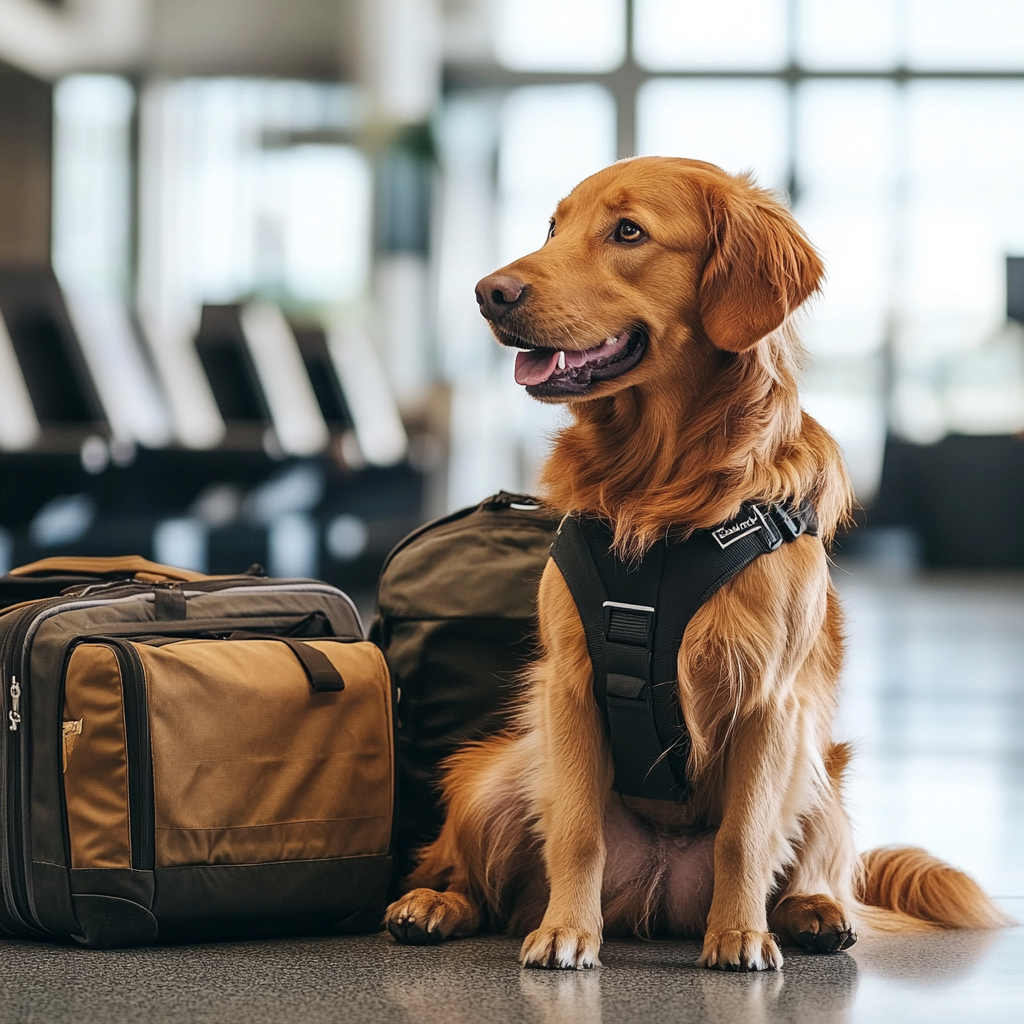
Holiday Travel Tips for Pet Parents: A Stress-Free Adventure with Your Furry Friend
There’s something extra special about celebrating the holidays with a wagging
tail or a gentle purr nearby. However, holiday travel with pets can feel
daunting if you’re not prepared. Every detail from ensuring your pet’s comfort
to sticking with a familiar food like Drools can make a big difference in how
smoothly the journey goes. Below, I’ve shared lessons learned from my own
experiences traveling with dogs and cats during this busy season.
1. Plan Early, Don’t Rush
Why It Matters
The holidays are hectic with last-minute shoppers, packed transport
systems, and people rushing to see loved ones. Amid all the chaos, a dog
or cat who’s never ventured beyond the local park might find it
overwhelming.
- Transportation Logistics: Whether you’re
driving, taking a train, or flying, each mode of travel has its
own pet-related regulations. - Flights: Airlines often limit the number of
animals allowed in the cabin. If your pet is small, you might be
able to keep them under your seat. Larger dogs typically travel
in cargo, which requires additional paperwork and a specific
type of crate. - Trains: Some train services allow pets in
designated compartments, but these can fill up quickly
especially around Christmas, New Year, and summer
vacations. - Long Car Rides: While driving may seem like the
easiest option, it depends on whether your pet is comfortable
spending long hours in a moving vehicle. - Vet Preparations: A quick health check can
confirm your pet is fit for travel. It’s also a good time to
ensure vaccinations and parasite preventatives are up to date.
If your pet tends to get anxious on the road, your vet may
recommend mild calming aids.
Pro Tip: Before making any travel plans, ensure your
pet’s vaccinations are up to date. A well-planned vaccination schedule
protects them from common illnesses and helps ensure a smooth journey.
Check out our guide, “Everything You Need to Know About Vaccines
for Dogs in India,” to stay informed.
Personal Note: One December, I tried to board a train
with my dog at the last minute, only to find that the pet-friendly
compartment was fully booked. Lesson learned: reserve well in advance to
avoid heartbreak or hours of complicated rearrangements
2. The Pet Travel
Essentials
The Basics You Don’t Want
to Forget
- Carrier or Harness: Consider your pet’s size
and comfort level. A small dog or cat might prefer a soft-sided
carrier they can curl up in, while a larger dog may need a
sturdy crate. Make sure they can stand fully and turn around
comfortably. - Food and Water: Sticking to the same brand is
crucial. A sudden diet change, especially during travel, can
upset your pet’s stomach. That’s why I never leave home without
a stash of Drools kibble or whichever brand my pet is used to. I
also keep a reusable water bottle and a foldable bowl within
easy reach. - Soothing Items: A blanket or small toy carrying
your pet’s scent (or even your own) can help them feel secure in
unfamiliar environments. It’s amazing how a single chew toy can
ease their stress on a loud train. - Vet Documents: In some places, random checks
occur especially for rabies vaccination proof. Keep a small
folder with essential documents handy. - Treats & Wipes: I bring a few small treats
to reward calm behavior especially when stepping onto a noisy
plane or meeting new relatives. Pet-safe wipes are also
life savers for cleaning up accidents or muddy paws at rest
stops.
Note: I once made the mistake of switching to a new or
“fancier” pet food mid-journey, thinking I was treating my pup. It led
to an upset stomach that disrupted everyone’s plans. Lesson
learned: consistency beats novelty.
3. Traveling with Dogs in
Different Ways
Driving
- Condition Them: If your dog rarely rides in a car, start with
short drives around the neighborhood and gradually increase the
trip length. - Frequent Stops: Stretch breaks every two to three hours work
wonders. Let them sniff around a safe spot, get some fresh air,
and stretch their legs to help calm restless pups. - Seatbelts Matter: A loose dog in the car isn’t just
distracting it’s dangerous. Seatbelt harnesses or crates keep
them secure and prevent sudden leaps onto your lap while
driving.
Train Journeys
- Reserved Spaces: Some trains designate “pet-friendly” cabins,
but these sell out quickly especially around Diwali or
Christmas. Book early! - Keep Them Close: Other passengers may be uneasy around dogs, so
keeping your dog on a leash ensures they respect personal
space. - Tiny Rewards: I often pack small treats (like a packet of Drools
Chicken & Egg oven-baked biscuits) to keep my dog
occupied when the train halts and strangers step in or out.
Flying
- Cage Dimensions: Each airline has specific crate requirements,
from maximum weight limits to ventilation rules. Don’t wait
until the night before to check them! - Cabin or Cargo: Smaller pets usually have the option to travel
in the cabin, which is less stressful. If cargo is the only
option, ensure your dog’s crate is extra sturdy and clearly
labeled with your contact information. - Pre-Flight Exercise: A brisk walk or a short play session before
the flight can help your pup nap during the journey. Skipping
exercise may leave them restless, causing barking or pawing at
the crate in frustration.
4. Keeping It Stress-Free
How to Calm Nervous
Pets
One thing I’ve noticed: when I’m tense or rushing, my pets pick up on
that energy. Taking a few deep breaths before heading out helps me stay
calm, which in turn keeps them relaxed.
- Routines: Even while traveling, I stick to my dog’s usual meal
times. Using the same brand of pet food, like Drools, helps
maintain digestive stability. - Familiar Scents: When staying at a relative’s house, I set up a
small corner with my dog’s bed and blanket. It creates a “home
away from home,” giving her a safe retreat if visitors or
unfamiliar scents become overwhelming. - Gentle Desensitization: For highly anxious pets, some owners
play sounds of trains, car engines, or airplane rumbles at a low
volume a few weeks before travel. Gradually increasing the
volume can help desensitize them. This might not be necessary
for all pets, but it can be beneficial for sensitive dogs or
kittens.
Arriving & Enjoying the
Holiday
Settling In
- Give Them a Tour: A short walk around the property or
neighborhood helps your pet get familiar with the environment.
New sights and smells become less intimidating. - Introduction to Other Pets: If your relatives have a dog,
introduce them outside on neutral ground first. This prevents
territorial behavior in shared indoor spaces. - Maintain Meal Schedules: It might be a holiday for you, but your
pet thrives on routine. Serve meals at their usual times, keep
portion sizes consistent, and stick to the same brand they’re
used to (like Drools). Too many table scraps can lead to
diarrhea or weight gain both of which can put a damper on your
trip.
Participate in
Festivities
- Many families love including pets in their holiday photos.
Holding a treat or squeaky toy behind the camera can help
capture their attention like a pro. - If there’s a celebratory dinner, make sure any bones or harmful
foods (like chocolate or raisins) are kept out of your pet’s
reach.
Departing
- Goodbyes can be hectic. I always double-check that I’ve gathered
all my pet’s belongings leash, harness, leftover food, and their
beloved toy. A final bathroom break is also a smart move before
loading the car or heading to the station.
Conclusion
Taking your pet along for holiday travel can create unforgettable memories. Yes,
it requires a bit more planning and patience, but the joy on their face those
excited barks or gentle purrs makes it all worthwhile. As long as you prepare
the necessary travel documents, maintain mealtime consistency with a familiar
pet food, and prioritize your pet’s comfort, the journey becomes part of the
holiday fun rather than a source of stress. Wishing you and your furry companion
happy travels!
(Disclaimer: This article provides general
guidance. Always check travel regulations and consult a veterinarian for any
specific concerns regarding your pet’s health or temperament.)
